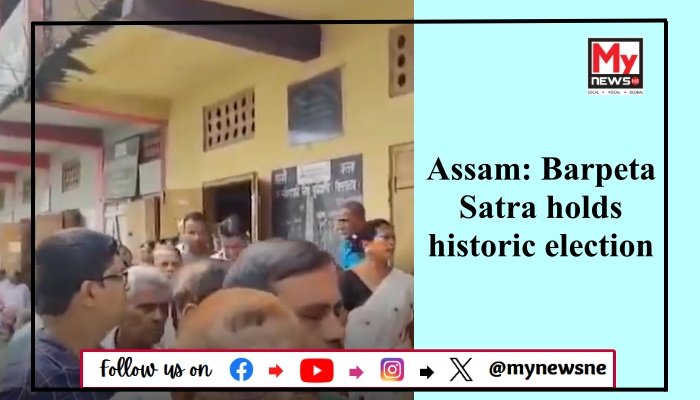Assam’s Barpeta Satra Holds Historic Election, Upholding Centuries-Old Democratic Traditions
Guwahati, 29th September: Assam’s Barpeta Satra, one of the state’s oldest Vaishnavite monasteries, held its much-anticipated election, continuing a tradition that has been a cornerstone of its governance since 1935. This democratic process, unique among Vaishnavite monasteries, predates India’s independence and is a reflection of the Satra’s commitment to democracy.
Unlike other Vaishnavite monasteries where the Satradhikar (monastery head) is appointed, Barpeta Satra elects its leaders, including the Burah Satriya (President of the Satra Managing Committee) and Deka Satriya (Vice-President), through a voting process involving its members, the Satriyas. This year’s election saw 8,410 voters casting their ballots across 15 polling stations, with two candidates vying for the coveted position of Burah Satriya and 36 candidates contesting 28 seats in 18 constituencies for the managing committee.
The election at Barpeta Satra is not merely a political event but a testament to Assam’s rich democratic traditions, which have flourished long before modern India’s establishment. It serves as a reminder of the resilience and continuity of democratic ideals in the region, offering inspiration in the face of adversity.
Founded by Mahapurush SriSri Madhavdeva, a disciple of the 16th-century saint and reformer Srimanta Sankardeva, Barpeta Satra is a cultural and spiritual hub. Its rich history, vibrant cultural activities, and stunning architecture continue to draw visitors from around the world, making it a cornerstone of Assamese heritage.
As votes are counted, the election marks the beginning of another chapter in the Satra’s long history, celebrating not just its political process but its dedication to tradition, spirituality, and community leadership.

